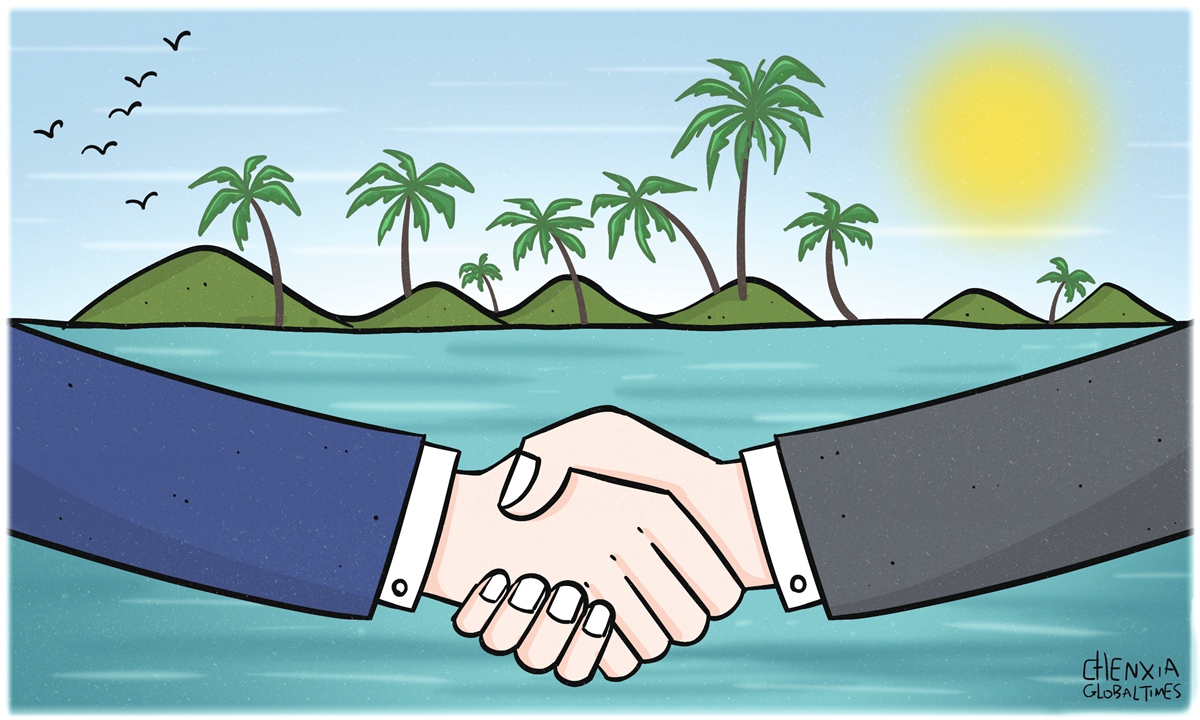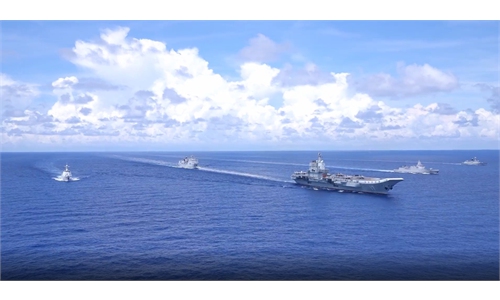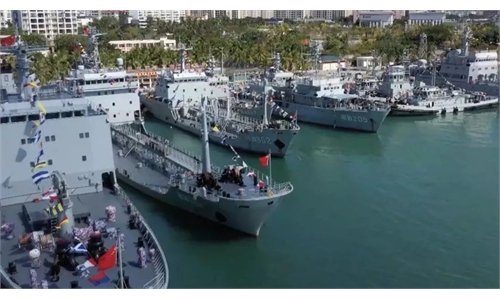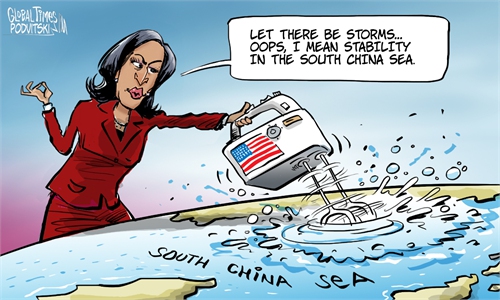Speeding up South China Sea COC talks signals regional countries' joint vision

South China Sea Illustration: Chen Xia/GT
ASEAN chair Indonesia said on Saturday that Jakarta proposed an "implementation plan" for ASEAN members to resume negotiations for the Code of Conduct (COC) in the South China Sea. Indonesia is preparing to host a round of negotiations on the COC this year, the first taking place in March, said Indonesian Foreign Minister Retno Marsudi.The situation in the South China Sea remains stable, the COC consultation process has gradually returned to the track of face-to-face meetings since last year, and the second reading of the draft negotiating text of the COC has accelerated. This helps China and ASEAN members to enhance trust, build consensus, and achieve the goal of managing crises, preventing conflicts and deepening practical maritime cooperation through the establishment of rules and regulations at an early date.
Today, triggers affecting the situation of the South China Sea are explicit. The Indo-Pacific Strategy promoted by the US creates regional division and confrontation, attempting to establish a small multilateral security mechanism against China. As a result, the anxiety of some neighboring countries surrounding the South China Sea issue has increased.
Although ASEAN members are always vigilant to avoid getting involved in major power confrontations, the Cold War mentality of some powers outside the region led by the US has intensified geopolitical competition in the South China Sea, which has to a certain extent distracted and reduced the attention of regional countries on cooperation in non-traditional security fields. A few ASEAN members' will to speed up the COC consultation has waned, trying to further solidify their illegal gains on controversial issues by extending the "window period" before the COC is reached. Divergence among parties on matters such as binding force, and enforcement mechanisms has brought difficulties to the conclusion of the COC.
Despite differences, consultation is a process of seeking common ground while reserving divergences and expanding consensus. ASEAN has regarded the South China Sea issue as leverage for sustaining its own unity, defending regional stability, and maintaining balance between major powers in recent years. On the other hand, there are still different views and agendas within ASEAN regarding the COC consultations, as well as on how and what role non-regional countries should play and how ASEAN's own interests should be protected. These differences not only have an impact on the progress of the COC consultation, but also on the substantive content and implementation effects of the code.
As the development of the 2002 Declaration on the Conduct of Parties in the South China Sea, the COC consultation is an effort and attempt by China and ASEAN members to explore and build a regional order before the settlement of relevant disputes in the South China Sea, and it is also of practice of international law and international relations practice of pioneering significance.
Although the COC will not address all the problems in the South China Sea, it is complementary to the declaration in crisis management and control. More than 20 years ago, the declaration set the formulation of a code as a long-term goal, which is to ensure that the South China Sea will become a sea of peace, friendship and cooperation through more substantive and effective regional rules.
There are both positive and negative factors influencing the situation in the South China Sea. It is the joint responsibility of China and ASEAN members to prevent the South China Sea issue from spiraling out of control via rule building. It has been proven that China has played a critical role in properly handling disputes in the South China Sea and maintaining regional peace and stability. The "dual-track approach" that China and ASEAN members have pursued and produced positive results should also be adhered to.
In the future, ASEAN members and China should meet each other halfway, manage and properly handle disputes in the South China Sea, continue to deepen functional maritime cooperation under the guidance of open regionalism, enhance the convergence of interests through more diverse, concrete and exemplary maritime cooperation projects, and reduce the negative impact of geopolitical factors through goodwill, common vision and successful practices of regional maritime governance cooperation.
Over the years, the COC consultations have achieved a series of phased results. Although the process has been delayed due to some factors, it has sustained positive momentum. We can draw an important revelation by the history and reality of the establishment of South China Sea rules: the primary beneficiaries of the South China Sea's tranquility are regional countries, and the bitter fruit of South China Sea turmoil will also be mainly bored by regional countries. These countries should firmly hold the key to solving problems in their own hands, accommodate each other's concerns, and prevent external interference and mutual differences from blocking the pace of deepening cooperation and building consensus. In this way, it will be a matter of course to reach an effective code that complies with international law.
The author is deputy director of the Research Center for Oceans Law and Policy at China's National Institute for South China Sea Studies. opinion@globaltimes.com.cn



